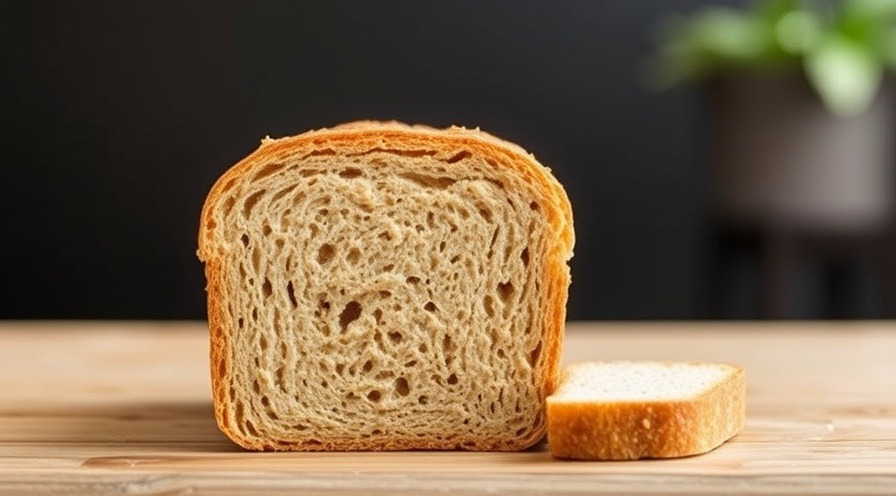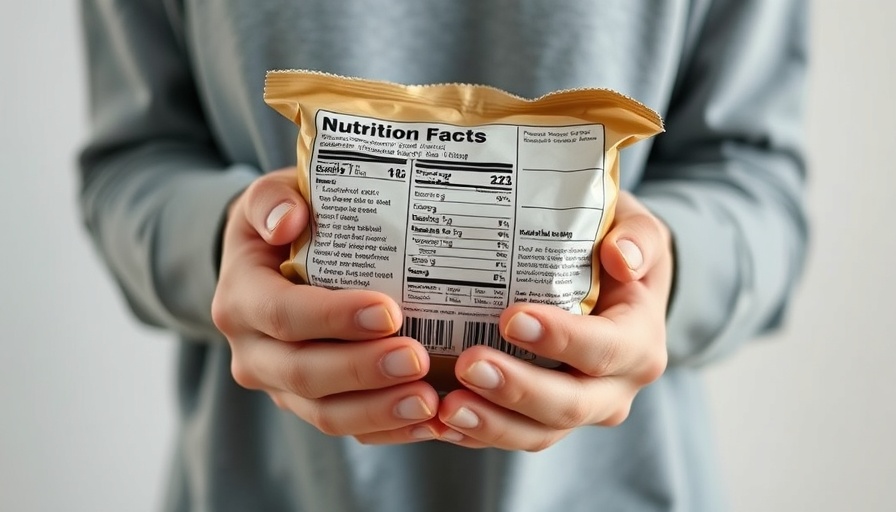
This isn't your grandma's bland gluten-free guide (unless your grandma is super hip and knows about cutting-edge research, in which case, she sounds awesome). We're going to explore whether you could be unknowingly sensitive to gluten, and spoiler alert: it's more common than you think!
Is Gluten-Free Just a Fad? Spoiler Alert: Nope!
You've seen the gluten-free aisles expanding in the grocery store, right? And menus proudly boasting their gluten-free options. You might have even rolled your eyes and thought, "Here we go again, another health trend." Well, according to a New York Times article, both Celiac Disease and non-Celiac Gluten Sensitivity are on the rise. And get this: it's estimated that one out of every 100 people has Celiac Disease, but a whopping only 17% are actually diagnosed! That's like having a secret club where most members don't even know they're in it.
What Exactly IS This Gluten Monster Anyway?
So, what's the deal with gluten? Well, it's a "glue-like protein found in grains like wheat, spelt, barley, rye and triticale (a cross between wheat and rye)". That "glue-like" description isn't just for show; it actually acts as a binder and gives bread and baked goods that lovely fluffy and chewy texture we all (or at least most of us) enjoy. Fun fact: because it's so darn sticky, it's even used in glue for envelopes and stamps! Who knew your innocent snail mail could be a gluten minefield?

Why the Sudden Increase in Gluten Issues? Blame it on the Bread! (Kind Of)
Ever wonder how we survived all these years chomping down on wheat if gluten is so "bad"? That's a great question posed by Dr. David Perlmutter in his book Grain Brain. The answer, according to the article, might surprise you.
Our ancestors weren't exactly downing loaves of super-glutenous bread at every meal. Today's grains are vastly different from those even 50-100 years ago, containing much more gluten. This all goes back to 1948 when the Rockefeller Foundation mandated an increase in yields of cereal grains, leading to the "Green Revolution". By the 1960s, an estimated 40,000 varieties of hybridized wheat were developed, many with significantly higher gluten content because, well, people love fluffy, chewy bread! It's like the wheat industry went into overdrive to give us the bounciest bread possible, and some of our digestive systems are now saying, "Whoa there, buddy!"
Interestingly, before refrigeration became common about 100 years ago, almost all bread was fermented (think delicious sourdough). This fermentation process actually broke down and removed the gluten protein before it was even eaten.
So, our great-great-grandparents were unknowingly getting a bit of a gluten "pre-digest" with their daily bread. While recent studies show that the sourdough process can indeed break down gluten, be warned that most store-bought "sourdough" might have added gluten and isn't truly fermented. Sneaky, right?
It's Not Just About the Gut: Hidden Symptoms of Gluten Sensitivity
You might be thinking, "Well, my stomach feels fine after eating bread, so I'm in the clear!" Not so fast, my friend! While digestive issues are common with Celiac and non-Celiac Gluten Sensitivity, a whole host of seemingly unrelated conditions can also be linked. These include:
IBS
ADD / ADHD
Eczema and Chronic Skin Rashes
Headaches
Depression
Epilepsy, Seizures, and Turret’s Syndrome
Schizophrenia
And, in some very interesting (and potentially misdiagnosed) cases, Lou Gehrig’s Disease (ALS) and Cystic Fibrosis.
This is where the expertise of people like Aristo Vojdani, Ph.D., UCLA Research Neurobiologist, comes in. His research indicates that a staggering 30% of all Western populations have gluten sensitivity! That's nearly a third of us potentially feeling less than our best because of this sneaky protein.

Case Study Alert!
Meet Alison. Her journey to a Celiac diagnosis involved two years of various health issues before anyone connected the dots to gluten. This personal experience highlights how gluten sensitivity or Celiac can manifest in ways beyond just tummy troubles, emphasizing the importance of considering it even if your digestion seems okay.
So, How Do You Know If Gluten is Your Foe?
Feeling like a gluten detective yet? If you're experiencing any of the symptoms mentioned above, with or without the classic gastrointestinal distress, it might be worth investigating. Alison recommends getting tested by your wellness provider for both Celiac and gluten sensitivity. There are various tests available, including genetic testing and an upper GI biopsy.
However, she specifically suggests starting with the Cyrex Array 3X blood test, which she describes as the "most comprehensive gluten-sensitivity test available today". If that comes back positive, the Cyrex Array 4 test can check for 24 "cross-reactive" foods that gluten-sensitive individuals might also react to.
Now, here's the slightly less fun part: insurance might not always cover these tests. But as Alison wisely points out, if it saves you years of pain and a downward health spiral, it might be worth the out-of-pocket expense. Important Note: If you suspect you have a gluten intolerance, do NOT stop eating gluten until after you have been tested, as being gluten-free can alter your test results. It's like trying to find a culprit after they've already cleaned up the crime scene!

Gluten: The Master of Disguise
Even if you're actively trying to avoid gluten, that sneaky protein can be hiding in more places than you think. While gluten-free options are becoming more common, it can be found in virtually every type of processed food in various hidden forms.
Remember the envelope and stamp glue? That's just the tip of the iceberg! Gluten can also lurk in personal care products. So, becoming a master label reader is crucial if you're trying to navigate a gluten-free life. Heidi even has a page full of gluten-free recipes to help you on your journey!
Final Thoughts: Listen to Your Body (and Maybe Get Tested!)
Ultimately, understanding your body and how it reacts to different foods is key. Gluten sensitivity and Celiac Disease are more prevalent than many realize, and their symptoms can be surprisingly diverse. So, if you're experiencing unexplained health issues, don't dismiss the possibility of gluten playing a role.
It might just be the missing piece of your wellness puzzle. And who knows, going gluten-free might just make you feel fantastic again! If you need help figuring things out, don't hesitate to reach out to a wellness professional who knows about Gluten sensitivity!
 Add Row
Add Row  Add
Add 




 Add Row
Add Row  Add
Add 

Write A Comment